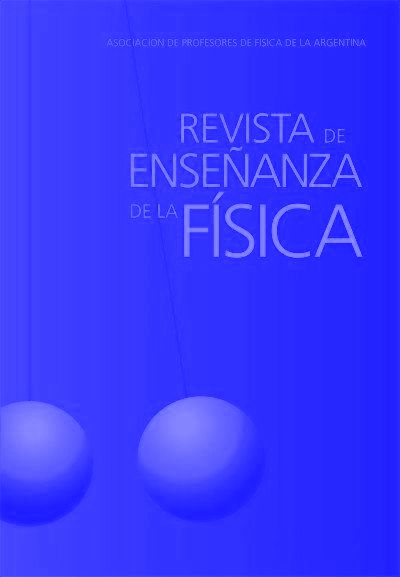Predisposition to a meaningful learning of physics: intentionality, motivation, interest, self-efficacy, self-regulation, and personalized learning
DOI:
https://doi.org/10.55767/2451.6007.v33.n1.33232Keywords:
meaningful learning, physics teaching, predisposition to learnAbstract
Predisposition to learn is one of the key conditions for meaningful learning. The other one is the previous knowledge. In other words, we could say that we learn if we want and from what we already know. In this presentation the focus will be in the pre-disposition to learn, from several perspectives, trying to understand why in the teaching of physics what usually happens is to generate an indisposition, not a predisposition, to learn it meaningfully.
References
Ausubel, D. P. (1963). The psychology of meaningful verbal learning. New York: Grune and Stratton.
Ausubel, D. P., Robinson, F.G. (1969). School learning: An introduction to educational psychology. London: Holt, Rinehart & Winston.
Ausubel, D. P. (2000). The acquisition and retention of knowledge: A cognitive view. Dordrecht: Kluwer Academic Publishers.
Denhann, R. L. (2011). Teaching Creative Science Thinking. Science,334.
Dewey, J. (2018). Democracy and Education: An introduction to the philosophy of education. Gorham, ME: Myers Education Press. (First Ed., 1916)
Enbang, L. I. (2016). Readers Forum. Physics Today: February.
Freire, P. (1988). Pedagogia do Oprimido. São Paulo: Paz e Terra. 18ª edição.
Freire, P. (2007). Pedagogia da autonomia: saberes necessários à prática educativa. São Paulo: Paz e Terra. 36ª edição.
Fullan, M., Quinn, J., McEachen, J. (2018). Deep learning: engage the world change the world. T. Oaks, Cal: Corwin.
Harold, B. (2016). Technology in Education: An Overview. Education Week, February 5.
Maiztegui, A.P., Sabato, J.A. (1951). Introducción a la Física. Buenos Aires: Editorial Kapelusz. Vol. 1.
Novak, J.D. (1981). Uma Teoria de Educação. São Paulo: Pioneira.
Otero, V.K., Meltzer, D.F. (2017). The past and future of physics education reform. Physics Today: May.
Renninger, K.A., Nieswandt, M., and Hidi, S. (Eds) (2015). Interest in mathematics and science learning. Washington: American Educational Research Association.
Vergnaud, G. (1990). La théorie des champs conceptuels. Récherches en Didactique des Mathematiques, 10(23), 133-170.
Downloads
Published
Issue
Section
License

This work is licensed under a Creative Commons Attribution-NonCommercial-NoDerivatives 4.0 International License.
Aquellos autores/as que tengan publicaciones con esta revista, aceptan los términos siguientes:Los autores/as conservarán sus derechos de copiar y redistribuir el material, bajo los términos estipulados en la Licencia de reconocimiento, no comercial, sin obras derivadas de Creative Commons que permite a terceros compartir la obra bajo las siguientes condiciones:
- Reconocimiento — Debe reconocer adecuadamente la autoría, proporcionar un enlace a la licencia e indicar si se han realizado cambios. Puede hacerlo de cualquier manera razonable, pero no de una manera que sugiera que tiene el apoyo del licenciador o lo recibe por el uso que hace.
- NoComercial — No puede utilizar el material para una finalidad comercial.
- SinObraDerivada — Si remezcla, transforma o crea a partir del material, no puede difundir el material modificado.
- Los autores/as podrán adoptar otros acuerdos de licencia no exclusiva de distribución de la versión de la obra publicada (p. ej.: depositarla en un archivo telemático institucional o publicarla en un volumen monográfico) siempre que se indique la publicación inicial en esta revista.
- Se permite y recomienda a los autores/as difundir su obra a través de Internet (p. ej.: en archivos telemáticos institucionales o en su página web) antes y durante el proceso de envío, lo cual puede producir intercambios interesantes y aumentar las citas de la obra publicada. (Véase El efecto del acceso abierto).










